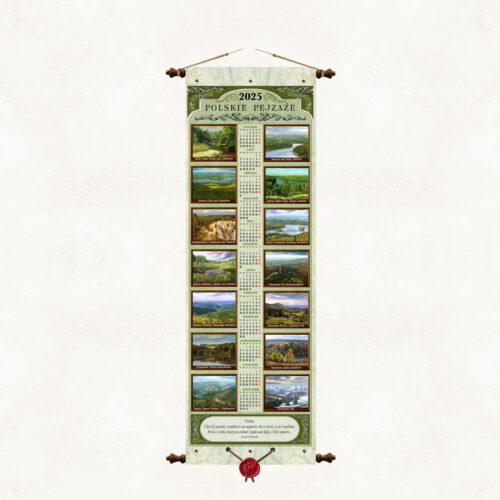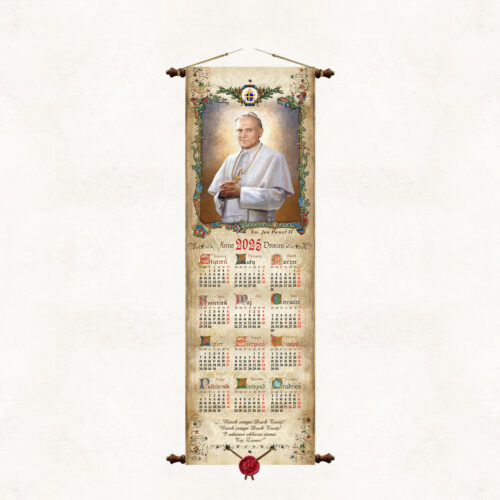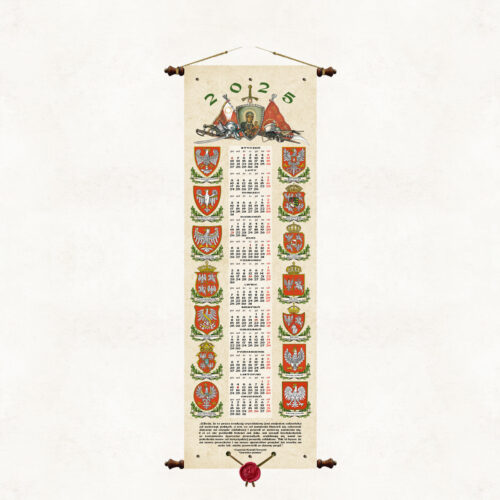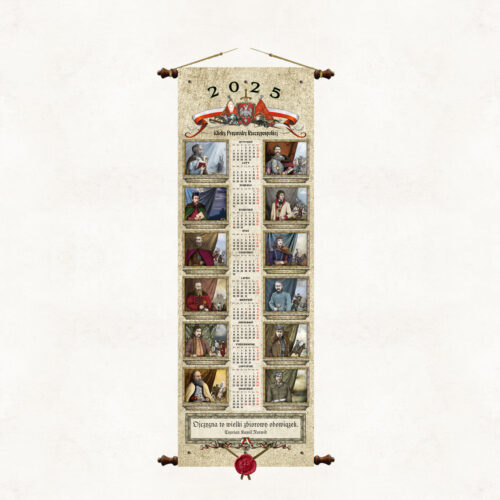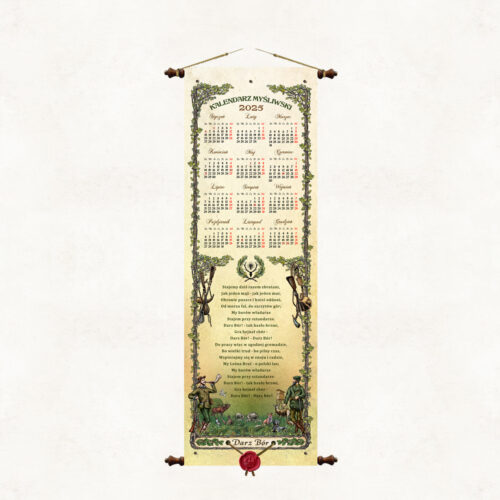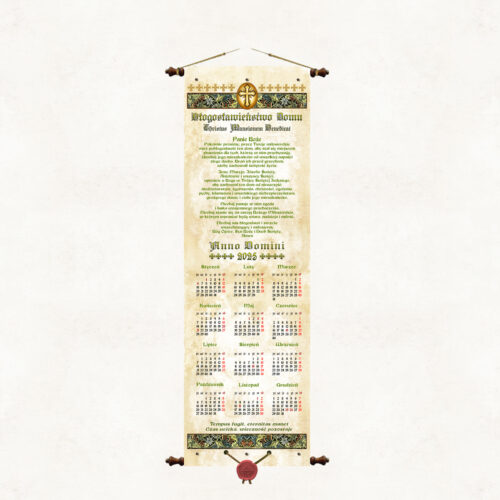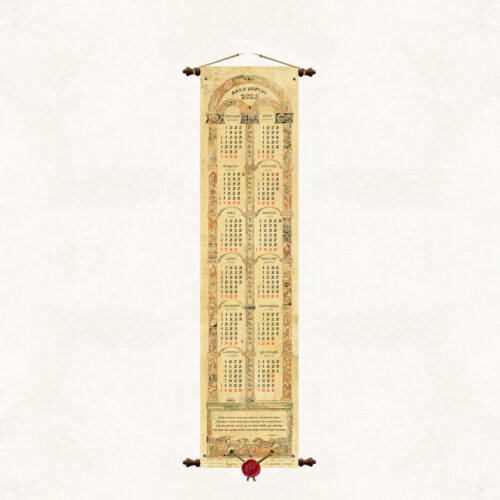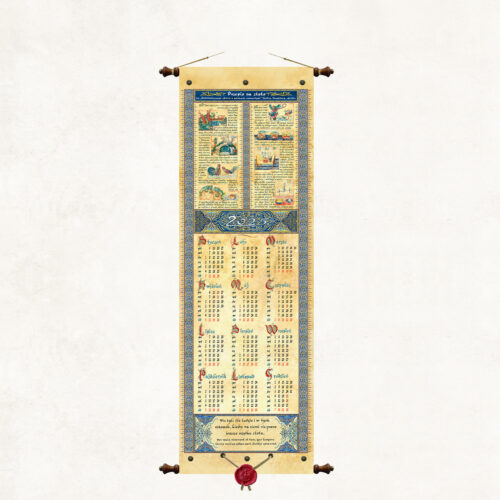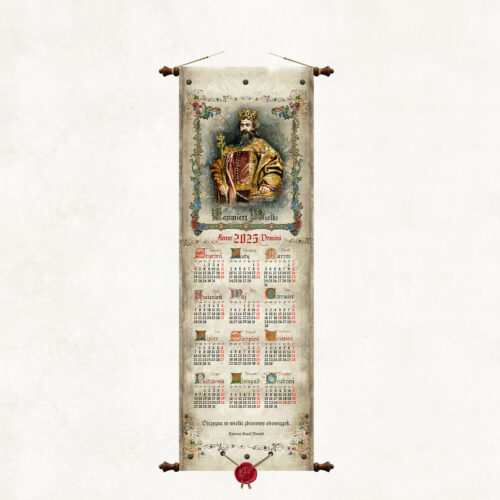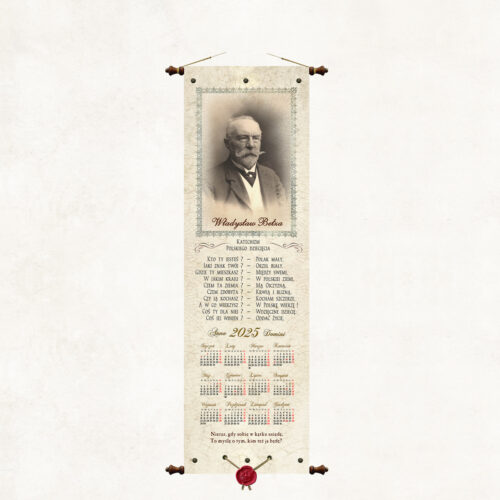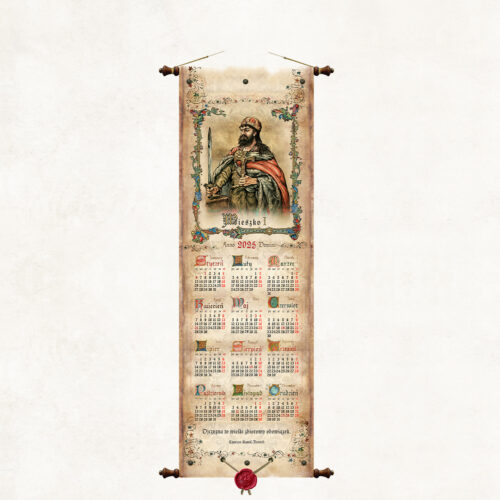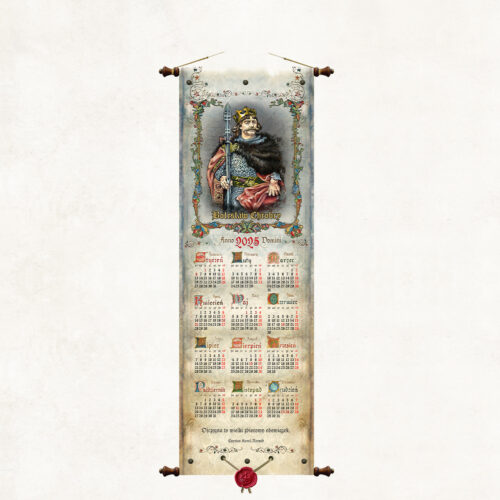-
Patriotic and educational calendar, compendium of national symbols. It presents a historical outline of the evolution of the Polish emblem, the prophetic message of Cyprian Kamil Norwid indicating the significance of tradition in the history of the nation. We produce the publication in various sizes depending on the needs of the recipient.
-
A calendar dedicated to foresters and hunters with the text of their informal anthem titled "Darz Bór". The song was written in 1920 by forester engineer Stanisław Wyrwiński. In it, he used a phrase of his own creation, which is popular today among Polish foresters and hunters, greeting - Darz Bór.
-
An original calendar with a beautiful prayer for the blessing of a house and its inhabitants, beginning with the Latin sentence Christus mansionem benedicat ("May Christ bless this house"). Receiving and giving a blessing is one of the most important aspects of the religious life of Christians. The prayer for a Blessing is words equipped with effective spiritual power, thanks to which an individual or a community feels strengthened and safe, free from fear and resistant to the influence of evil. A blessing is a gift from God, from whom all good comes, it is a tangible manifestation and confirmation of His life-giving presence in the world and His favor towards those who trust Him. Our publication is a beautiful testimony of faith.
-
The calendar contains an alchemical, medieval recipe for gold from the "Collection of recipes for various arts" - Schedule diversarum artium, Theophilus Presbyter (ca. 1070-1125). The schedule allows for a detailed familiarization and analysis of the techniques of artistic crafts in the Middle Ages. The work is divided into three volumes. The first volume contains information on techniques, production and use of materials for drawing and painting, the use of paint and ink, especially for book painting and wall painting. The second volume concerns stained glass and stained glass technique. The third volume is devoted to goldsmithing and it is there that the oh-so-"practical" recipe for gold is given.
-
CASIMIR THE GREAT (1310 – 1370) The last of the Piast dynasty, king of Poland from 1333. Due to his talented foreign policy and the small number of wars fought, he was called the "diplomatic king" and "he who found Poland wooden and left it brick", due to the construction of dozens of new cities and expansion or building several hundred new castles and fortresses. His reign actually consolidated the process of unification of Polish lands and led Poland out of political isolation in Europe, after nearly two centuries of division.
-
Scroll calendar - Władysław Bełza Władysław Bełza (born October 17, 1847 in Warsaw, died January 29, 1913 in Lviv) - Polish neo-romantic poet, writing in a patriotic spirit, called the eulogist of Polishness. Publicist, animator of cultural, educational and press life, co-founder of the Polish educational organization Macierz Polska. Author of, among others, the famous patriotic poem "Catechism of a Polish Child" which begins with the words Who are you? - Little Pole...
-
MIESZKO (922–992) The first historical ruler of Polish lands, the actual creator of Polish statehood. An efficient politician and a talented leader. He fought for Western Pomerania and wars with the Czechs, conquering Silesia and Lesser Poland. By being baptized in 966, he strengthened the state, equaling it with the Christian countries of Europe. He established a Polish bishopric in Gniezno and initiated the construction of numerous defensive strongholds and churches.
-
BOLESŁAW CHROBRY (967 - 1025) Son of Mieszko I, the first crowned king of Poland. He was an ally of Emperor Otto III, whom he hosted in Gniezno in 1000. He led victorious wars for Milsko and Lusatia. He organized missionary trips to Kyiv. He placed his son-in-law Svatopluk on the Russian throne and regained the Cherven Castles, previously occupied by Prince Vladimir of Kiev, annexing them to his state. Historians are increasingly adding the word "Great" to his name.

